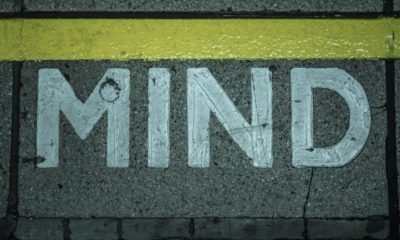Life
The Best Techniques to Boosting Your Memory in a Busy World
The human brain is highly complex. You must know how to make use of it to improve your memory.

People often confuse weak memory and poor recollection. They complain of weak memory. It is not a weak memory but a poor collection of information. How sad it is when you cannot recall the name of a person you met in the past.
What impression does it convey to another person when you regrettably say that you forgot his name?
In this busy and competitive world people forget telephone numbers, passwords, and PINs. It not only stops the work but also irritates not remembering. Sometimes, you curse yourself for not remembering the things.
There are several tools and techniques by which you can improve your memory. It is not a big challenge but it requires a little more concentration and effort. The human brain is highly complex. You must know how to make use of it to improve your memory.
In this context, it is desirable to know briefly about memory.
What is Memory?
Memory is a mental activity where in stored information is recalled and retrieved as and when required. It is divided into two types: short-term and long-term. In short-term memory, the information is stored for a few seconds or minutes.
In contrast, in long-term memory, the information is stored for a longer duration. When people listen to others, they feed in their memory automatically whether to register for short-term or long-term depending on the importance of information.
Techniques to improve your memory
- Open up your mind and instruct to encode new information.
- Concentration is the key to good memory. Explore ways to enhance your concentration.
- Stay focused on one thing at a time. Don’t go for multitasking. Whenever you feel that the information is important you need to put in more effort and concentration so that you can remember well.
- Avoid noises, interruptions, and external disturbances while listening.
- Do things slowly as it reinforces your memory.
- Call people by names when introduced. For instance, “It is my pleasure to meet you, Robert”. Associate names of the people with well-known people you have already registered in your mind for better retention. Create visual pictures in your mind.
- When you speak louder you can remember better as you listen to your voice. Maintain a diary to jot down the important information.
- Prioritize the information while receiving it. It helps in retaining the important information. Instead of typing the information, you may write with your hand as the muscular memory will be activated resulting in storing the information.
- There are several games on television and online to enhance your memory. Playing the same will prove to be helpful.
- Assimilate the information rather than reading the content for the sake of reading. It aids your memory.
- If you find it difficult to memorize large content, you can break it into small parts. Memorize each small part and mentally compile the same for final memorization.
- Relate the information with your real live events through pictorial visualization as it helps in recollection.
- Research reveals that humans can remember between 5 to 9 items at a time. If you can break the information between 5 to 9 items then it becomes easy for you to remember and recollect.
- People have a natural tendency to remember rhymes and rhythms. Therefore, convert your content accordingly for effective memory.
- Go to bed without overly worried about anything. If you go to bed thinking about the problems then you get better solutions by the next day morning.
- Relax your mind when blocked with memory recall. Engage your mind on other issues. To your surprise, you will recall whatever you wanted as your brain searches for the information.
- Avoid anxiety and stress as it blocks your memory. Adopt relaxation techniques.
- Make use of your inner dialogue. Every individual is involved in self-talk which is also known as inner dialogue. Repeated conversation within your mind reinforces and aids your memory.
- When you talk about new concepts with others, it not only improves your communication skills but also aids in memorizing complicated information.
- The way you exercise your body you should exercise your memory muscles.
- Finally, eat nutritious food as it keeps your body and mind healthy. It aids in effective memory.
Memory Techniques for Students
- Students should review the information they receive in the classroom within a day so that they can retain the same effectively. Jotting down the points taught during the class by the teacher helps them to review and revise immediately.
- Students should focus on the keywords while reading the content as it helps them in analyzing, understanding, and memorizing the content. Read the content repeatedly if possible.
- Develop your mnemonic device wherein the first letters of each word have to be framed as a word for better recalling. It helps students, especially during examinations.
- Use highlighters and colored pens while reading the text and apply the same depending on the importance and priority of the content. It helps in saving time and also in better memory.
- Find out what kind of senses would be comfortable and ideal for you and exploit the same for better memory.
- “A picture is worth a thousand words” goes the saying. Use pictures, graphs, and charts to help your memory.
- Write and rewrite the content repeatedly as it enriches your content apart from aiding your memory.
We all are Blessed with Good Memories
Memory is not the privilege of a gifted few. If you know that it is a skill you can cultivate easily. But you need to put in effort regularly to achieve amazing results. Memory tips help everyone including children, students, and working people to achieve success.
We all are blessed with good memories. Unfortunately, we don’t realize and exploit. Effective utilization of memory helps in better interpersonal relations, builds bridges, and ensures all-around success.
Did You Know
How Skilled Migrants Are Building Successful Careers After Moving Countries
Behind every successful skilled migrant career is a mix of resilience, strategy, and navigating systems built for locals.

Moving to a new country for work is exciting, but it can also be unnerving. Skilled migrants leave behind familiar systems, networks, and support to pursue better job opportunities and a better future for their families. (more…)
Life
10 Research-Backed Steps to Create Real Change This New Year
This New Year could finally be the one where you break old patterns and create real, lasting change.

Every New Year, we make plans and set goals, but often repeat old patterns. (more…)
Life
9 Harsh Truths Every Young Man Must Face to Succeed in the Modern World
Before chasing success, every young man needs to face these 9 brutal realities shaping masculinity in the modern world.

Many young men today quietly battle depression, loneliness, and a sense of confusion about who they’re meant to be.
Some blame the lack of deep friendships or romantic relationships. Others feel lost in a digital world that often labels traditional masculinity as “toxic.”
But the truth is this: becoming a man in the modern age takes more than just surviving. It takes resilience, direction, and a willingness to grow even when no one’s watching.
Success doesn’t arrive by accident or luck. It’s built on discipline, sacrifice, and consistency.
Here are 9 harsh truths every young man should know if he wants to thrive, not just survive, in the digital age.
1. Never Use Your Illness as an Excuse
As Dr. Jordan B. Peterson often says, successful people don’t complain; they act.
Your illness, hardship, or struggle shouldn’t define your limits; it should define your motivation. Rest when you must, but always get back up and keep building your dreams. Motivation doesn’t appear magically. It comes after you take action.
Here are five key lessons I’ve learned from Dr. Peterson:
-
Learn to write clearly; clarity of thought makes you dangerous.
-
Read quality literature in your free time.
-
Nurture a strong relationship with your family.
-
Share your ideas publicly; your voice matters.
-
Become a “monster”, powerful, but disciplined enough to control it.
The best leaders and thinkers are grounded. They welcome criticism, adapt quickly, and keep moving forward no matter what.
2. You Can’t Please Everyone And That’s Okay
You don’t need a crowd of people to feel fulfilled. You need a few friends who genuinely accept you for who you are.
If your circle doesn’t bring out your best, it’s okay to walk away. Solitude can be a powerful teacher. It gives you space to understand what you truly want from life. Remember, successful men aren’t people-pleasers; they’re purpose-driven.
3. You Can Control the Process, Not the Outcome
Especially in creative work, writing, business, or content creation, you control effort, not results.
You might publish two articles a day, but you can’t dictate which one will go viral. Focus on mastery, not metrics. Many great writers toiled for years in obscurity before anyone noticed them. Rejection, criticism, and indifference are all part of the path.
The best creators focus on storytelling, not applause.
4. Rejection Is Never Personal
Rejection doesn’t mean you’re unworthy. It simply means your offer, idea, or timing didn’t align.
Every successful person has faced rejection repeatedly. What separates them is persistence and perspective. They see rejection as feedback, not failure. The faster you learn that truth, the faster you’ll grow.
5. Women Value Comfort and Security
Understanding women requires maturity and empathy.
Through books, lectures, and personal growth, I’ve learned that most women desire a man who is grounded, intelligent, confident, emotionally stable, and consistent. Some want humor, others intellect, but nearly all want to feel safe and supported.
Instead of chasing attention, work on self-improvement. Build competence and confidence, and the rest will follow naturally.
6. There’s No Such Thing as Failure, Only Lessons
A powerful lesson from Neuro-Linguistic Programming: failure only exists when you stop trying.
Every mistake brings data. Every setback builds wisdom. The most successful men aren’t fearless. They’ve simply learned to act despite fear.
Be proud of your scars. They’re proof you were brave enough to try.
7. Public Speaking Is an Art Form
Public speaking is one of the most valuable and underrated skills a man can master.
It’s not about perfection; it’s about connection. The best speakers tell stories, inspire confidence, and make people feel seen. They research deeply, speak honestly, and practice relentlessly.
If you can speak well, you can lead, sell, teach, and inspire. Start small, practice at work, in class, or even in front of a mirror, and watch your confidence skyrocket.
8. Teaching Is Leadership in Disguise
Great teachers are not just knowledgeable. They’re brave, compassionate, and disciplined.
Teaching forces you to articulate what you know, and in doing so, you master it at a deeper level. Whether you’re mentoring a peer, leading a team, or sharing insights online, teaching refines your purpose.
Lifelong learners become lifelong leaders.
9. Study Human Nature to Achieve Your Dreams
One of the toughest lessons to accept: most people are self-interested.
That’s not cynicism, it’s human nature. Understanding this helps you navigate relationships, business, and communication more effectively.
Everyone has a darker side, but successful people learn to channel theirs productively into discipline, creativity, and drive.
Psychology isn’t just theory; it’s a toolkit. Learn how people think, act, and decide, and you’ll know how to lead them, influence them, and even understand yourself better.
Final Thoughts
The digital age offers endless opportunities, but only to those who are willing to take responsibility, confront discomfort, and keep improving.
Becoming a man today means embracing the hard truths most avoid.
Because at the end of the day, success isn’t about luck. It’s about who you become when life tests you the most.
Change Your Mindset
The Four Types of Happiness: Which One Are You Living In?
Most people chase success only to find emptiness, this model reveals why true happiness lies somewhere else.

In a world driven by rapid technological growth and constant competition, many people unknowingly trade joy for achievement. (more…)
-

 Health & Fitness2 weeks ago
Health & Fitness2 weeks agoWhat Minimalism Actually Means for Your Wellness Choices
-

 News1 week ago
News1 week agoBrandon Willington Builds 7-Figure Business by Ignoring Almost Everything
-

 Did You Know2 weeks ago
Did You Know2 weeks agoWhy Most Online Courses Fail and How to Fix Them
-

 Business2 weeks ago
Business2 weeks agoIf Your Business Internet Keeps Letting You Down, Read This
-

 Business3 days ago
Business3 days agoEntrepreneur’s Guide to Pay Stubs: Why Freelancers and Small Business Owners Need a Smart Generator
-

 Business1 day ago
Business1 day agoThe Simple Security Stack Every Online Business Needs
-

 Finances1 day ago
Finances1 day agoWhy Financial Stress Is One of the Biggest Barriers to Personal Growth
-

 Scale Your Business23 hours ago
Scale Your Business23 hours ago5 Real Ways to Grow Your User Base Fast




















